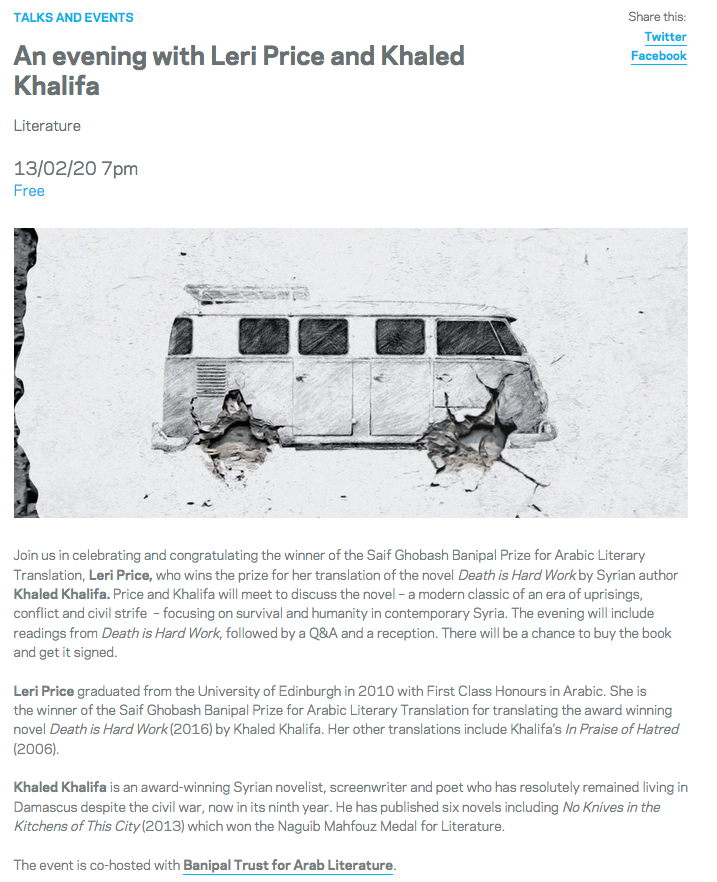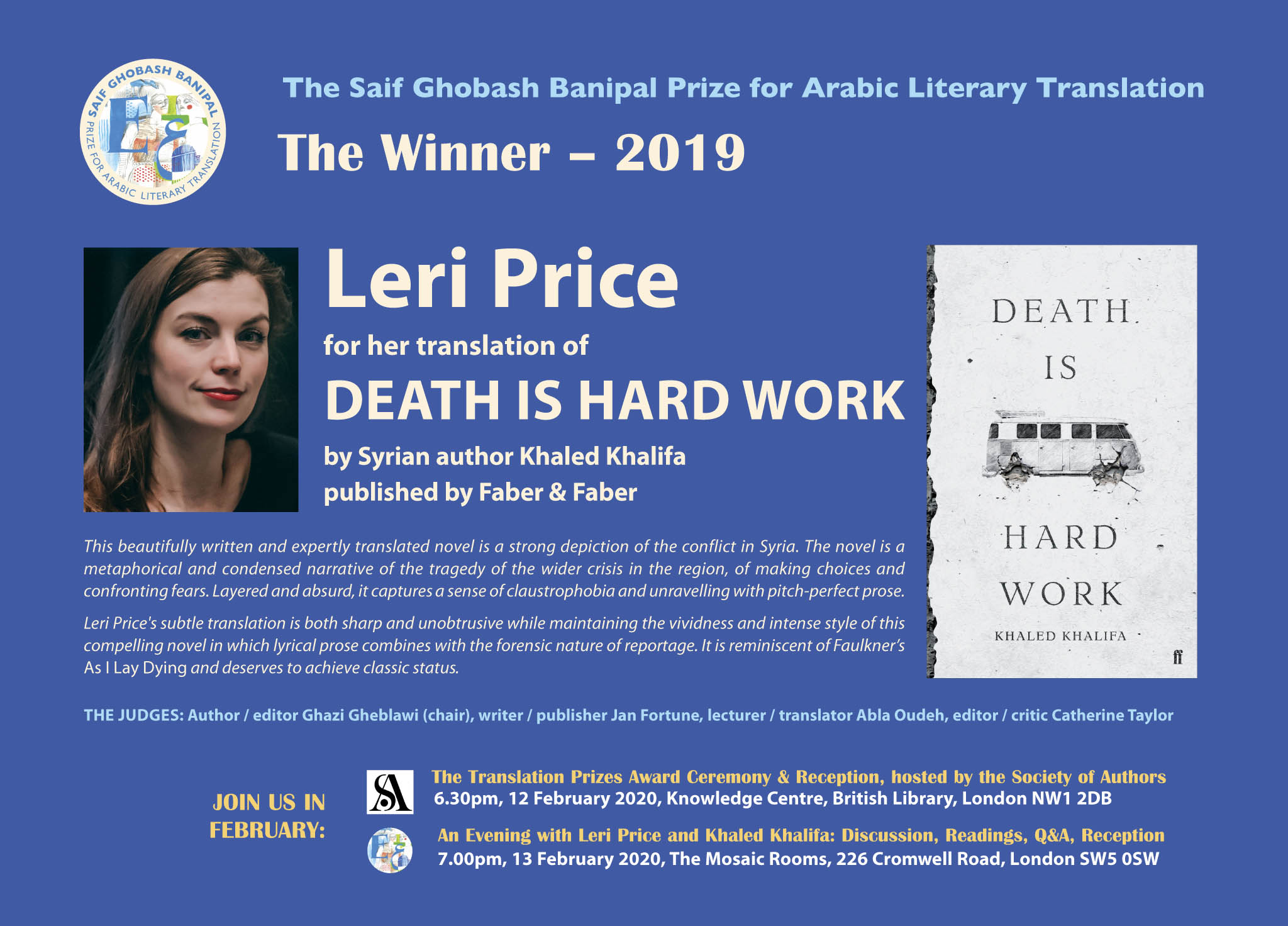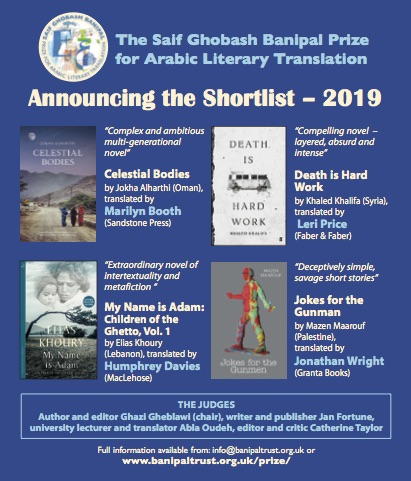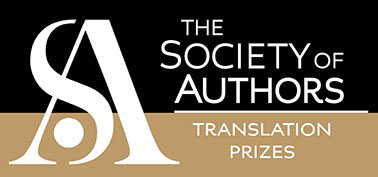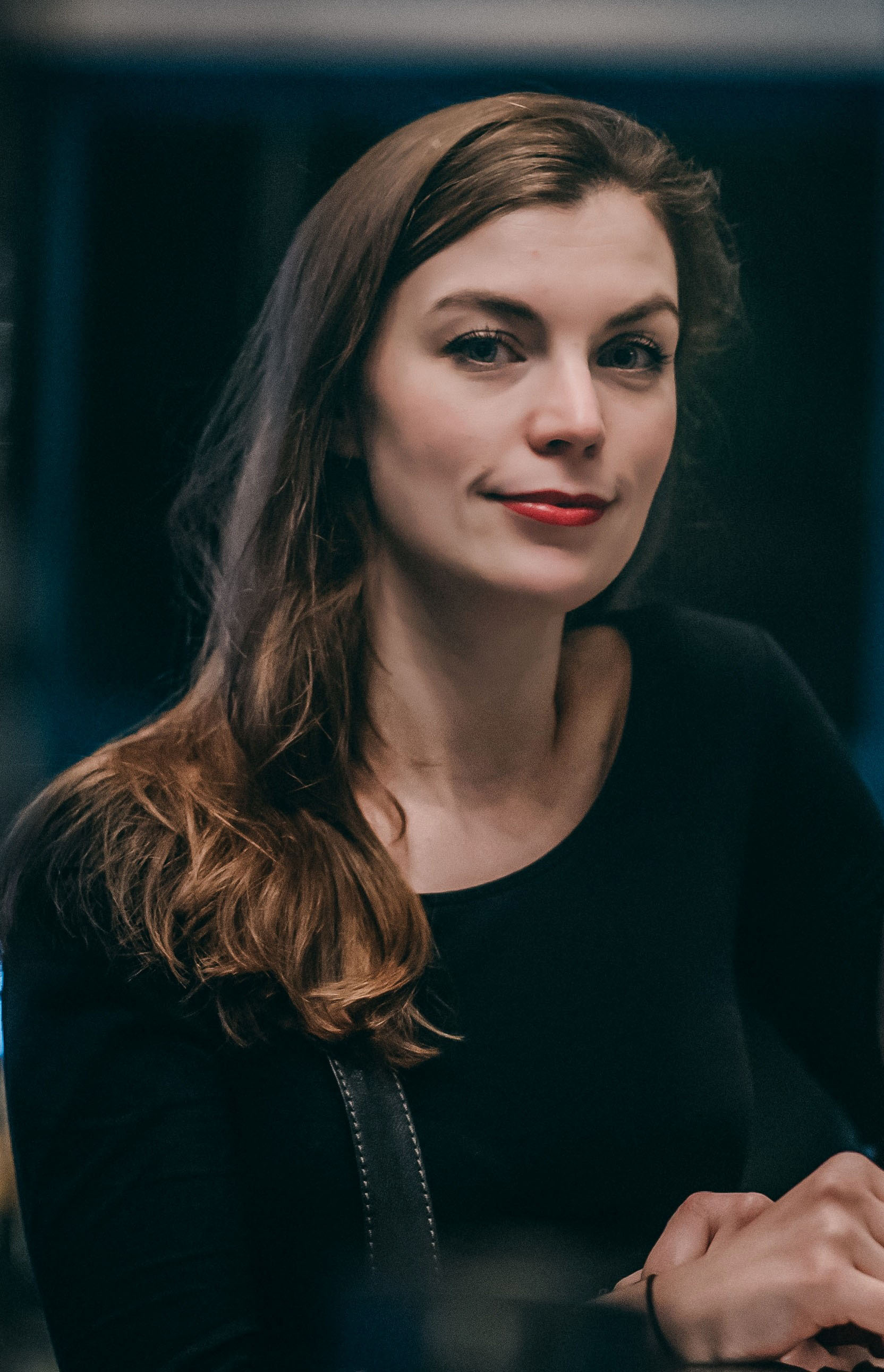The 2019 Saif Ghobash Banipal Prize for Arabic Literary Translation
Winner Shortlist Entries
LERI PRICE wins the 2019 Prize
“A subtle translation that is both sharp and unobtrusive”
The 2019 Saif Ghobash Banipal Prize for Arabic Literary Translation is awarded to Leri Price for her translation of the novel Death is Hard Work by Syrian author Khaled Khalifa, published by Faber & Faber. Following the shortlist of four titles that was announced on 2 December 2019, the judges are unanimous in naming Leri Price as the winner of the £3,000 prize, to be awarded by the Society of Authors on 12 February 2020.
The judging panel comprised fiction writer and publishing editor Ghazi Gheblawi (Chair); poet, novelist and publisher Jan Fortune; university lecturer and translator Abla Oudeh; and writer, critic and former deputy director of English PEN Catherine Taylor. For more information about the judges go to this link: https://www.banipaltrust.org.uk/prize/judges2019. The prize is administered by Paula Johnson, Head of Prizes and Awards at the Society of Authors.
THE JUDGES’ REPORT
THE WINNER
Leri Price for her translation of the novel
Death is Hard Work by Khaled Khalifa
Leri Price deserves the highest commendation for her achievement in conveying the vividness and the intense style of Khaled Khalifa’s compelling novel about survival and humanity in modern-day Syria in a subtle translation that is both sharp and unobtrusive. Price was successful in dealing with the intricacies and nuances of a narrative that takes us into a world of chaos, thrill and tragedy, a world imbued with the absurd and the horrific. The judges noted particularly that the translation succeeded in conveying all aspects of the author’s enthralling text, in which lyrical prose combines with the forensic nature of reportage, in a seamless and smooth manner.
The judges considered Death is Hard Work a beautifully and tightly written novel and a strong depiction of the conflict in Syria through the quest of three siblings to honour the last wishes of their deceased father that he be buried in his home village, across the country through war and torment. Their journey, which deftly mirrors the conflict outside their minibus, brings out the dysfunctional relationships of the family. Khalifa’s metaphorical and condensed narrative presents the tragedy of the wider crisis in the region. Layered and absurd, the novel captures a sense of claustrophobia, unravelling with pitch-perfect prose.
The judging panel of the 2019 Saif Ghobash Prize were honoured to have read and discussed this year’s entries. They stressed that all four finalists were works of high quality by accomplished and emerging authors and translators, but reached a unanimous decision to award the accolade to Leri Price’s exceptional translation. Death is Hard Work is an audacious work, which they felt would stand the test of time as a modern classic of an era of uprisings, conflict and civil strife.
* * *
Reactions from the winning translator, author and publisher
Winner Leri Price says:
“Simply being on the shortlist among such translators as Marilyn Booth, Humphrey Davies and Jonathan Wright was an incredible feeling, and I still feel a bit overwhelmed. For me, this is a testament to Khaled’s unique, humane and vitally important writing – it is every translator’s dream to have such a text to work with. It was a privilege for me to have translated Death is Hard Work and as ever a joy to work with Khaled. I hope this prize helps more people to find and enjoy his work.”
Author Khaled Khalifa writes:
“I cannot hide my delight and excitement at the news that my friend and translator Leri Price has won this prize, the reputation of which grows with every passing year. Leri Price has developed greatly as a translator over the last ten years, and her constant diligence and patience render her highly deserving of all recognition. Thank you to the judging panel, to Banipal and those involved with the Saif Ghobash Banipal Prize for this honour, both to my translator and novel.”
Emmie Francis of Faber & Faber says:
“Despite the persistent tragedy that exists in Syria, Khaled Khalifa brings relief by writing with clarity, hope and literary bravura in his fiction. Faber & Faber is proud to be his publisher in English, and for Death is Hard Work to be honoured with the Saif Ghobash Banipal Prize is a triumph. It is a powerhouse of a novel, depicting the quotidian horrors of civil war with a gaze that is humane, piercing, true.”
ABOUT THE TRANSLATOR
 Leri Price graduated from the University of Edinburgh in 2010 with First Class Honours in Arabic. She has translated the three novels of the Syrian author Khaled Khalifa that have appeared so far in English translation. The Arabic original of the first one, In Praise of Hatred, had been shortlisted for the inaugural 2008 International Prize for Arabic Fiction. The Arabic original of the second novel, No Knives in the Kitchens of This City, was awarded the 2013 Naguib Medal for Literature and then shortlisted for the 2014 International Prize for Arabic Fiction. Leri Price’s translation of the novel was shortlisted for the US 2017 National Translation Awards (NTA), in the prose category, and shortlisted for the 2017 Saif Ghobash Banipal Prize for Arabic Literary Translation. It was also listed in “Best Books of 2016: Fiction in Translation” by the Financial Times. Khaled Khalifa’s third novel to be translated by Leri Price, Death is Hard Work (Faber & Faber 2019), was longlisted for the 2019 US National Book Award for Translated Literature, shortlisted for the 2019 Saif Ghobash Banipal Prize and is now its prize winner. Price’s other recent translations include Sarab by award-winning writer Raja Alem, published by Hoopoe Fiction.
Leri Price graduated from the University of Edinburgh in 2010 with First Class Honours in Arabic. She has translated the three novels of the Syrian author Khaled Khalifa that have appeared so far in English translation. The Arabic original of the first one, In Praise of Hatred, had been shortlisted for the inaugural 2008 International Prize for Arabic Fiction. The Arabic original of the second novel, No Knives in the Kitchens of This City, was awarded the 2013 Naguib Medal for Literature and then shortlisted for the 2014 International Prize for Arabic Fiction. Leri Price’s translation of the novel was shortlisted for the US 2017 National Translation Awards (NTA), in the prose category, and shortlisted for the 2017 Saif Ghobash Banipal Prize for Arabic Literary Translation. It was also listed in “Best Books of 2016: Fiction in Translation” by the Financial Times. Khaled Khalifa’s third novel to be translated by Leri Price, Death is Hard Work (Faber & Faber 2019), was longlisted for the 2019 US National Book Award for Translated Literature, shortlisted for the 2019 Saif Ghobash Banipal Prize and is now its prize winner. Price’s other recent translations include Sarab by award-winning writer Raja Alem, published by Hoopoe Fiction.
ABOUT THE AUTHOR
 Khaled Khalifa is a Syrian novelist, screenwriter and poet who has resolutely remained living in Damascus despite the civil war, now in its ninth year. Khalifa was born in a village near Aleppo, Syria, in 1964, the fifth child of a family of thirteen siblings. He has a BA in Law from Aleppo University, and was a founding editor of the literary magazine Alif. His first novel Haris al-Khadi’a (The Guard of Deception) appeared in 1993, followed in 2000 by Dafatir al-Qurbat (The Gypsies’ Notebooks). His 2006 third novel, Madih al-Karahiya, was the first to be translated into English, by Leri Price, under the title In Praise of Hatred (Doubleday, 2012). The Arabic original was shortlisted for the inaugural IPAF in 2008 and Price’s translation was longlisted for the Independent Foreign Fiction Prize in 2013. Price then translated Khalifa’s 2013 novel No Knives in the Kitchens of This City (Hoopoe Fiction, 2016), which was shortlisted for the Saif Ghobash Banipal Prize in 2017. The Arabic original won the AUC Press’s Naguib Mahfouz Medal for Literature in 2013 and was shortlisted for the 2014 IPAF. Khalifa’s 2016 novel Death is Hard Work appeared in Price’s English translation in 2019 and was a finalist for the 2019 US National Book Award for Translated Fiction. Khalifa’s latest novel is Lam Yasulli ’alayhum Ahad (No One Prayed over their Graves), published this year by Hachette-Antoine/Naufal (Lebanon) and Dar Al-Ain (Egypt), and longlisted for the 2020 IPAF. In addition to his novels, Khalifa has written numerous scripts for TV dramas and films, several of which have won awards.
Khaled Khalifa is a Syrian novelist, screenwriter and poet who has resolutely remained living in Damascus despite the civil war, now in its ninth year. Khalifa was born in a village near Aleppo, Syria, in 1964, the fifth child of a family of thirteen siblings. He has a BA in Law from Aleppo University, and was a founding editor of the literary magazine Alif. His first novel Haris al-Khadi’a (The Guard of Deception) appeared in 1993, followed in 2000 by Dafatir al-Qurbat (The Gypsies’ Notebooks). His 2006 third novel, Madih al-Karahiya, was the first to be translated into English, by Leri Price, under the title In Praise of Hatred (Doubleday, 2012). The Arabic original was shortlisted for the inaugural IPAF in 2008 and Price’s translation was longlisted for the Independent Foreign Fiction Prize in 2013. Price then translated Khalifa’s 2013 novel No Knives in the Kitchens of This City (Hoopoe Fiction, 2016), which was shortlisted for the Saif Ghobash Banipal Prize in 2017. The Arabic original won the AUC Press’s Naguib Mahfouz Medal for Literature in 2013 and was shortlisted for the 2014 IPAF. Khalifa’s 2016 novel Death is Hard Work appeared in Price’s English translation in 2019 and was a finalist for the 2019 US National Book Award for Translated Fiction. Khalifa’s latest novel is Lam Yasulli ’alayhum Ahad (No One Prayed over their Graves), published this year by Hachette-Antoine/Naufal (Lebanon) and Dar Al-Ain (Egypt), and longlisted for the 2020 IPAF. In addition to his novels, Khalifa has written numerous scripts for TV dramas and films, several of which have won awards.
ABOUT THE BOOK
 Death is Hard Work by Khaled Khalifa, translated by Leri Price
Death is Hard Work by Khaled Khalifa, translated by Leri Price
Faber & Faber, 12 February 2019. ISBN: 978-0374135737, paperback, 192pp.
It is the winter of 2014, and against a backdrop of falling bombs the elderly Abdel Latif al-Salim dies in a hospital in Damascus. During his final hours he entrusts his son Bolbol with a final request: to be buried beside his sister Layla in their ancestral town of Anabiya, near Aleppo. Seeing no alternative but to honour his father's dying wish Bolbol agrees to the tasks and, with the help of his siblings Hussein and Fatima, embarks on a 200-mile journey to transport Abdel Latif's body to its final resting place. Ordinarily the trip would take a few hours – indeed, Hussein estimates that they will reach their destination by midnight. But three years of relentless siege have left the region in chaos. With their dead father in the back of Bolbol’s minibus, Bolbol, Hussein and Fatima must travel through abandoned towns and streets that have been reduced to rubble, passing mass graves of unidentified civilians and soldiers, lurching from checkpoint to checkpoint, trapped in vast traffic jams among a “mass exodus, hundreds of thousands of people heading from the north and the east towards the unknown”. The journey, in the end, lasts several days.
From the review of Death is Hard Work by Stephanie Petit, published in Banipal 65 (Summer 2019).
Death is Hard Work, published in the USA by Farrar, Straus and Giroux, has won "best book" accolades there, being on several 2019 lists – Library Journal Best Books of the Year, Wall Street Journal Best Books of the Year, and NPR Best Book of the Year.
* * *
The 2019 Prize – The Shortlist
The Saif Ghobash Banipal Prize is thrilled to announce the shortlist of the 2019 Prize. The four shortlisted works are translated by two former winners of the prize, Humphrey Davies and Jonathan Wright, a previously shortlisted translator, Leri Price, and award-winning translator Marilyn Booth.
The judges were privileged to read this year’s 17 entries, and noticed the enriching diversity of styles, themes and genres. Although three of the shortlisted titles deal with civil unrest and conflict, each is distinguished by place, time and literary narrative. The four books deal with issues of belonging, social change and the absurdity of war and existence. From urban metropolises like Beirut, New York and Damascus to small villages, these titles captured the judges' imaginations and opened windows into the ordinary lives of their characters with extraordinary sensitivity through nuanced and vivid translations.
The shortlisted works are:
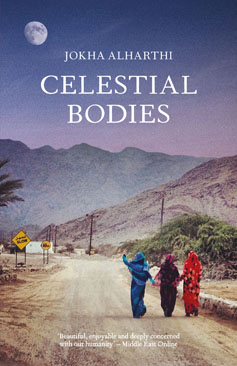
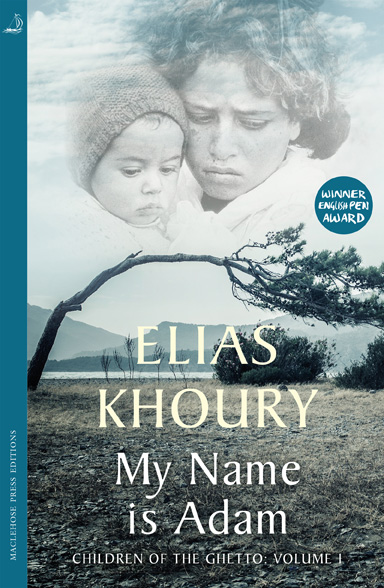
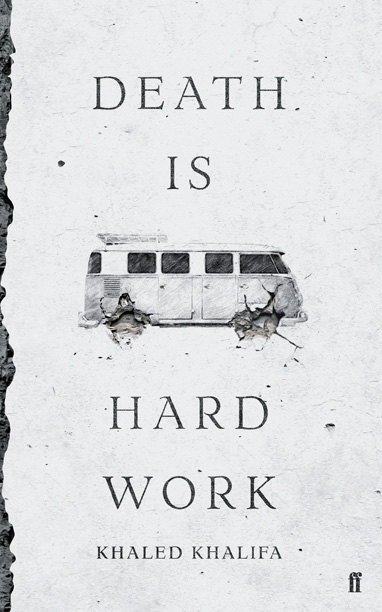
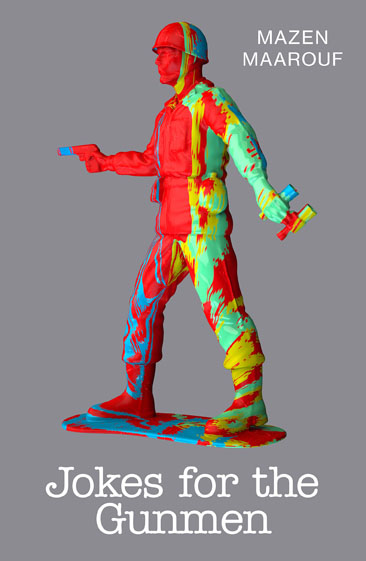
Celestial Bodies by Jokha Alharthi (Oman) translated by Marilyn Booth (Sandstone Press)
My Name is Adam: Children of the Ghetto, Volume 1– Elias Khoury (Lebanon), translated by Humphrey Davies (MacLehose Press)
Death is Hard Work by Khaled Khalifa (Syria), translated by Leri Price (Faber & Faber)
Jokes for the Gunmen by Mazen Maarouf (Palestine), translated by Jonathan Wright (Granta Books)
The judging panel comprises fiction writer and publishing editor Ghazi Gheblawi (Chair); poet, novelist and publisher Jan Fortune; university lecturer and translator Abla Oudeh; and writer, critic and former deputy director of English PEN Catherine Taylor.
To download a PDF of the announcement click here
THE JUDGES’ COMMENTS
 Marilyn Booth
Marilyn Booth
shortlisted for her translation of
Celestial Bodies by Jokha Alharthi
Published by Sandstone Press, UK, 2018
ISBN: 978-1912240166, paperback, 2018, 256 pages, £8.99
The US edition is published by Catapult, 2019
ISBN: 9781948226943, paperback, 256 pages, $16.95
Jokha Alharthi’s complex and ambitious multi-generational novel builds a rare picture of social change in Oman after its modern economic transformation, through the microcosm of a small village. Marilyn Booth is to be applauded for her vivid, nuanced, and compelling translation of Celestial Bodies. She succeeds in bringing to life the complicated relationship of three sisters as they come of age and witness the cultural and social evolution of the world around them through their family’s past stories and dramas. The elegant and rich translation captures the fine details in the lives of women who are caught between expectations and aspirations in a rapidly changing world. The fluent and honed prose makes this an insightful novel that manages to approach sensitive topics like slavery and role of women in Oman through the past decades with profound artistry and poignancy.
- Marilyn Booth is the Khalid bin Abdullah Al Saud Professor of the Study of the Contemporary Arab World at the University of Oxford, Faculty of Oriental Studies. She has a DPhil in the modern history of the Middle East and modern Arabic literature from the University of Oxford, and was in 2009–2014 the Iraq Professor of Arabic Studies at Edinburgh University, and held a one year post as Senior Humanities Research Fellow at New York University, Abu Dhabi. Booth has translated more than a dozen novels, short story collections and memoirs from Arabic: her translation of Jokha Alharthi’s Celestial Bodies became, in May 2019, the first novel translated from Arabic to win the Man Booker International Prize, shared equally between author and translator. Her previous translations include two novels by Lebanese writer Hassan Daoud ̶ The Penguin’s Song (City Lights, 2015) and No Road to Paradise (Hoopoe Fiction, 2017). Other authors she has translated include Hoda Barakat. Somaya Ramadan, Ibtihal Salem, Nawal El Saadawi, Sahar Tawfiq and Latifa al-Zayyat. Booth’s strong interest in Arab women’s writing is reflected by her most recent book: Classes of Ladies of Cloistered Spaces: Writing Feminist History through Biography in Fin-de-siècle Egypt (Edinburgh University Press, 2015). She is editor of, and contributor to, Migrating Texts: Circulating Translations around the Ottoman Mediterranean (Edinburgh, 2019).
- Jokha Alharthi was born in Oman in 1978 and was awarded a PhD in Classical Arabic Poetry by the University of Edinburgh in 2010. She teaches Arabic at Sultan Qaboos University in Muscat, Oman. Alharthi has written three novels, two collections of short fiction and a children’s book, and is the first Omani female author to have been translated from Arabic to English. She has been shortlisted for the Shaikh Zayed Award for Young Writers and she won the 2010 Best Omani Novel Award for her novel Sayyidat al-Qamar (literally ‘Ladies of the Moon’), which was excerpted in Banipal 40 in 2011. In May this year Marilyn Booth’s translation of this same novel under the title Celestial Bodies won the Man Booker International Prize, shared equally between author and translator. Alharthi’s short stories have been published in English translation, and in translation to German, Italian, Korean, and Serbian.
* * * *
 Humphrey Davies
Humphrey Davies
shortlisted for his translation of
My Name is Adam: Children of the Ghetto, Volume 1, by Elias Khoury
Published by MacLehose Press, London, October 2018
ISBN: 9780857057501, paperback, 448 pages, £16.99
The US edition is published under the title
Children of the Ghetto: My Name is Adam by Archipelago Books, USA, June 2019
ISBN: 9781939810137, paperback, 400 pages, $20.00
A middle-aged Israeli man, Adam Dannoun, living in New York discovers the truth about his origins and past that shatters all facts about his life and identity. In this epic and extraordinary novel of intertextuality and metafiction we enter a world of academic scholarship, human tragedy and the consequences of historical catastrophes that are still resonating to our present time. With intricate and engaging translation by Humphrey Davies this first volume of Children of the Ghetto covers many aspects of classical and modern Arabic culture and its prose and poetry, drama and tragedy. With its use of a ‘found notebook’ to convey a history of silence lit by bravery, ingenuity and resolve the novel takes us on a journey of self-atonement and discovery from Lydda in 1948 to modern day New York. The novel is translated with remarkable skill and attention that movingly conveys the pain and joy of existence in every astonishing sentence.
- Elias Khoury was born in Beirut in 1948 and is a prominent novelist, academic, journalist and public intellectual. He worked as an assistant editor on Palestinian Affairs magazine (1975-1997) and was editor of the cultural section of As-Safir newspaper (1981-1991), Al-Karmel magazine (1981-83) and the literary supplement of An-Nahar newspaper (1992-2008). Since 2001, he has edited Palestinian Studies magazine. He has been a visiting professor at Columbia University, New York (1980-82), global distinguished professor at the University of New York (2001-2014) and visiting professor at the Lebanese American University (2015). Khoury is the author of 13 novels, four volumes of literary criticism and three plays. His translated novels include Little Mountain (1977), White Masks (1981), The Journey of Little Gandhi (1989), Gate of the Sun (1998) and Yalo (2002). His novel Sinacol (2012) was longlisted for the 2013 International Prize for Arabic Fiction (IPAF), with Humphrey Davies’s translation under the title The Broken Mirrors: Sinalcol (MacLehose Press) published in 2015. Children of the Ghetto: My Name is Adam (2016) was shortlisted for 2017 International Prize for Arabic Fiction. (In the UK edition the two parts of the title are reversed.)
- Humphrey Davies studied Arabic at Cambridge, University, achieving a First, and at the American University in Cairo. He completed his PhD at the University of California, Berkeley. He worked in publishing in the Middle East and, in Cairo, on the Hinds and Badawi Dictionary of Egyptian Arabic. He then worked for non-governmental community development and funding organizations, before turning to literary translation, with his first translation, a short story, being published in Banipal magazine in 2000. He translated an early Naguib Mahfouz novel (Thebes at War, 2003) for the American University in Cairo Press, and has continued translating for them, with Alaa Al-Aswany’s The Yacoubian Building (2004), Ahmed Alaidy’s Being Abbas el Abd (September 2006), and Gamal al-Ghitani’s Pyramid Texts. His translation of Elias Khoury’s Gate of the Sun, published in the UK by Harvill Secker and in the USA by Archipelago Press, won the Saif Ghobash Banipal Prize in its inaugural year, 2006. He won the 2010 Prize for his translation of Khoury’s novel Yalo (MacLehose Press). In that year he was also a runner-up for his translation of Sunset Oasis (Spectre) by Egyptian author Bahaa Taher, whose Arabic original had won the inaugural IPAF in 2008. In 2012 Davies was runner-up in the Saif Ghobash Banipal Prize for his translation of I Was Born There, I Was Born Here by Palestinian writer Mourid Barghouti. He translated Ahmad Faris al-Shidyaq’s four volumes of Leg Over Leg, published in 2014 and 2015, for the Library of Arabic Literature (NYU Press). The translation of Leg Over Leg was shortlisted for the American Literary Translators Association’s National Translation Award in 2016.
* * * *
 Leri Price
Leri Price
shortlisted for her translation of
Death is Hard Work by Khaled Khalifa
Published by Faber & Faber, London, 2019
ISBN: 9780571346042, paperback, 192 pages, £12.99
The US edition is published by Farrar, Straus and Giroux (a division of Macmillan), 2019
ISBN: 9780374135737, hardback, 192 pages, $25.00
Leri Price’s subtle translation of Death is Hard Work is both sharp and unobtrusive while maintaining the vividness and intense style of this compelling work. The novel is a strong depiction of the crisis in Syria, through the quest of three siblings to honour the last wishes of their deceased father to be buried in his home village, situated across war and torment. What ensues is a dangerous road journey that deftly mirrors the conflict outside their minibus that brings out the dysfunctional relationship of the family. Khalifa’s novel is a metaphorical and condensed narrative of the tragic war in Syria. Layered and absurd, it captures in pitch-perfect prose a sense of claustrophobia and unravelling that infects both family and Syria.
- Khaled Khalifa is a Syrian novelist, screenwriter and poet who has resolutely remained living in Damascus despite the civil war, now in its ninth year. Khalifa was born in a village near Aleppo, Syria, in 1964, the fifth child of a family of thirteen siblings. He has a BA in Law from Aleppo University, and was a founding editor of the literary magazine Alif. His first novel Haris al-Khadi’a (The Guard of Deception) appeared in 1993, followed in 2000 by Dafatir al-Qurbat (The Gypsies’ Notebooks). His 2006 third novel, Madih al-Karahiya, was the first to be translated into English, by Leri Price, under the title In Praise of Hatred (Doubleday, 2012). The Arabic original was shortlisted for the inaugural IPAF in 2008 and Price’s translation was longlisted for the Independent Foreign Fiction Prize (IPAF) in 2013. Price then translated Khalifa’s 2013 novel No Knives in the Kitchens of This City (Hoopoe Fiction, 2016), and it was shortlisted for the Saif Ghobash Banipal Prize in 2017. The Arabic original won the AUC Press’s Naguib Mahfouz Medal for Literature in 2013 and was shortlisted for the 2014 IPAF. Khalifa’s 2016 novel Death is Hard Work appeared in Price’s English translation in 2019 and was a finalist for the 2019 US National Book Award for Translated Fiction. Khalifa’s latest novel is No One Prayed over their Graves, published this year by Lebanese publisher Naufal, Hachette-Antoine, and in Egypt by Dar Al-Ain. In addition to his novels, Khalifa has written numerous scripts for TV dramas and films, several of which have won awards.
- Leri Price graduated from the University of Edinburgh in 2010 with First Class Honours in Arabic, including a distinction in spoken Arabic. She won the Carole Hillenbrand Prize for her Undergraduate Dissertation, entitled “What is the role of the translator in challenging Western cultural hegemony in Arabic-English literary translation?” She obtained a Master’s in Public Policy from York University in 2018. Price has been a self-employed translator since 2010 and is particularly known for her translations of the three novels by Syrian author Khaled Khalifa to have appeared so far in English translation. Price’s translation of Khalifa’s 2006 novel In Praise of Hatred, the Arabic original of which was shortlisted for the inaugural 2008 IPAF, was published by Doubleday in 2012. Her translation of his 2013 novel No Knives in the Kitchens of This City (Hoopoe, 2016) was shortlisted in 2017 for both the Saif Ghobash Banipal Prize and the National Translation Award of the American Literary Translators Association (ALTA). It was one of the Financial Times’ “Best Books of 2016: Fiction in Translation”.
* * * *
 Jonathan Wright
Jonathan Wright
shortlisted for his translation of
Jokes for the Gunmen by Mazen Maarouf (Palestine)
Published by Granta Books, London, 2019
ISBN: 978-1846276675, paperback, 176 pages, £10.99
In this evocative collection of short stories set during the Lebanese civil war in the 1980s we encounter characters that cling to life on the margins of conflict and daily strife. Mazen Maarouf’s deceptively simple, savage collection mixes the domestic and the horrific to achieve a level of absurdity that reflects the insanities of conflict through the eyes of its main young characters, who search for a meaning of the collapsing world around them. Jonathan Wright’s perfectly seamless and bold translation of Jokes for the Gunmen manages to portray the satirical nature of Maarouf’s post-modern style, which is masterful and deadly, deadpan and sardonic. The translation renders Maarouf’s language in an elegant and engaging prose which maintains the fine line between reality and the fantastical world of the characters.
- Mazen Maarouf is a Palestinian-Icelandic writer, poet, translator and journalist who was born in Beirut, Lebanon, in January 1978 and now lives between Beirut and the Icelandic capital Reykjavik. He has published three poetry collections ̶ The Camera Doesn’t Capture Birds, Our Grief Resembles Bread, and An Angel Suspended on the Clothesline ̶ and two short story collections, Jokes for the Gunmen and The Rats that Lick a Karate Champion’s Ears. Jokes for the Gunmen won the 2016 inaugural Kuwait-based Al-Multaqa Prize for the Arabic Short Story and in 2019 Jonathan Wright’s translation of the collection was longlisted for the Man Booker International Prize. Maarouf’s short story “Boxes” was published in the anthology Beirut Noir (Akashic Noir, 2016) translated by Michelle Hartman, and his long short story “The Curse of the Mud Ball Kid” appeared in the anthology Palestine +100: Stories from a Century After the Nakba (Comma Press, 2019) in translation by Wright. Maarouf’s writing has been translated into several languages. On the journalistic side, in 2008 Maarouf started contributing to An-Nahar newspaper in Beirut as a literary and theatre critic, and he has since then written for many Arabic publications. He is at present working on a novel.
- Jonathan Wright is a London-based British journalist and literary translator who was born in Andover, UK, in 1953. A graduate in Arabic, Turkish, and Islamic History from St John’s College, Oxford University, he joined Reuters news agency in 1980 as a correspondent, and was based in the Middle East for most of three decades. He served as Reuters' Cairo bureau chief, lived and worked throughout the region, including in Egypt, Sudan, Lebanon, Tunisia and the Gulf. From 1998 to 2003, he was based in Washington, DC, covering U.S. foreign policy for Reuters. For two years until the autumn of 2011 Wright was editor of the Arab Media & Society Journal, published by the Kamal Adham Center for Journalism Training and Research at the American University in Cairo. Wright embarked on a career in Arabic literary translation in 2008 when his translation of Taxi by the Egyptian writer Khaled al-Khamissi was published by Aflame. Wright won the 2013 Saif Ghobash Banipal Prize for his translation of Azazeel (Atlantic Books) by Egyptian author Youssef Ziedan, and went on to win the 2016 Prize for the translation of The Bamboo Stalk (Bloomsbury Qatar Foundation Publishing – BQFP, now HBKU Press) by Kuwaiti author Saud Alsanousi. He was commended for the 2015 Prize for his translation of the late Jordanian writer Amjad Nasser’s novel Land of No Rain (BQFP), and was shortlisted for the 2018 Prize for his translation of Iraqi author Ahmed Saadawi’s Frankenstein in Baghdad published by Oneworld Publications in the UK, and Penguin Books in the USA. In 2014 his translation of Iraqi writer Hassan Blasim’s short-story collection The Iraqi Christ (Comma Press) won the Independent Foreign Fiction Prize, shared between author and translator.
The 2019 Prize – The Entries
There are 17 entries for the 2019-20 Prize, from ten different publishers. They comprize 16 novels and 1 poetry collection. One author, Mahmoud Shukair has two entries, and one translator, Jonathan Wright, also has two entries.


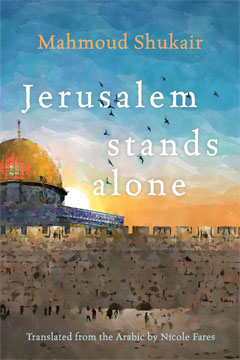
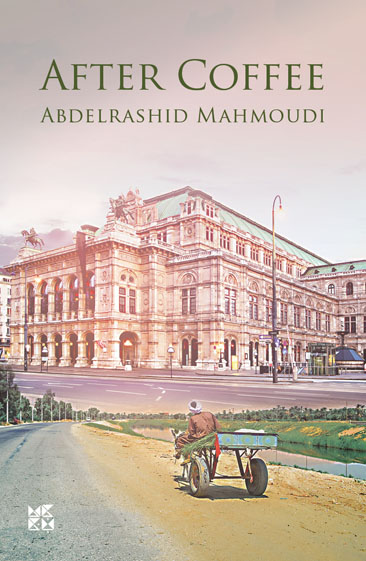
Celestial Bodies by Jokha Alharthi, translated by Marilyn Booth (Sandstone Press Ltd, June 2018)
My Name is Adam: Children of the Ghetto, Volume I, by Elias Khoury, translated by Humphrey Davies (MacLehose Press, UK / Archipelago Books, US)
Jerusalem Stands Alone by Mahmoud Shukair, translated by Nicole Fares (Syracuse University Press, April 2018)
After Coffee by Abdelrashid Mahmoudi, translated by Nashwa Gowanlock (Hamad Bin Khalifa University Press, May 2018)
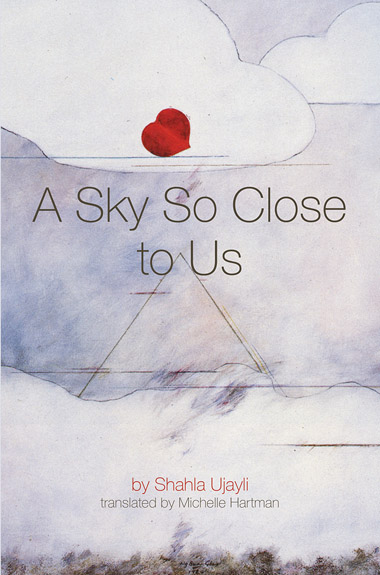
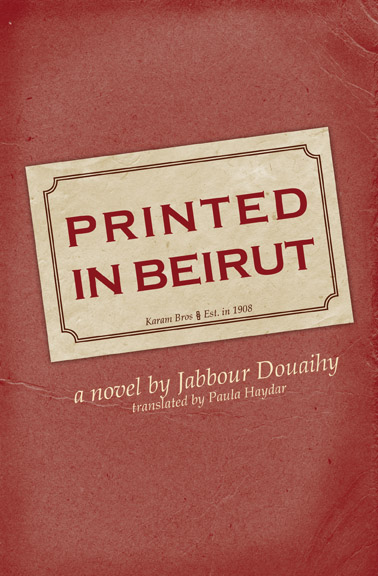
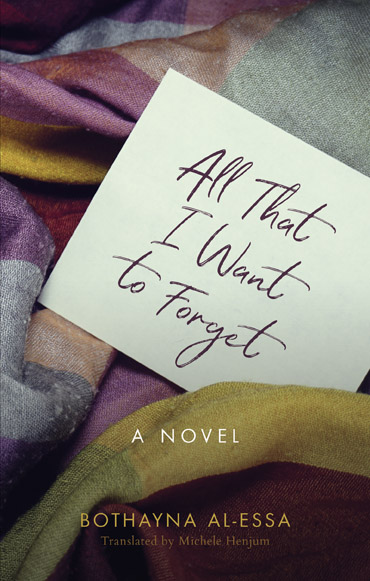
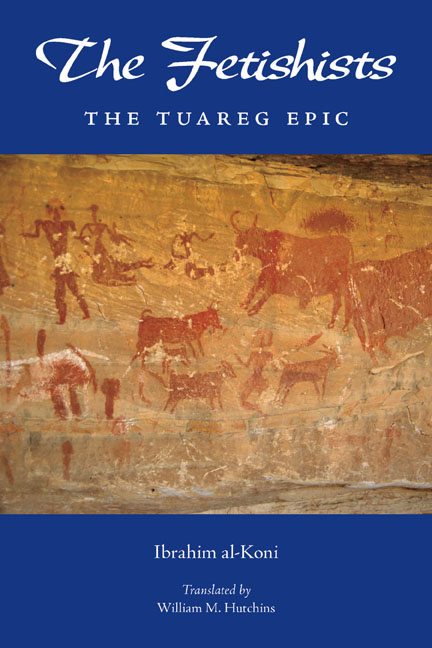
A Sky So Close to Us by Shahla Ujayli, translated by Michelle Hartman (Interlink Books, March 2019)
Printed in Beirut by Jabbour Douaihy, translated by Paula Haydar (Interlink Books, August 2018)
All That I Want to Forget by Bothayna Al-Essa, translated by Michele Henjum (Hoopoe Fiction, December 2018)
The Fetishists by Ibrahim al-Koni, translated by William M. Hutchins (Center for Middle Eastern Studies/UT Press, November 2018)
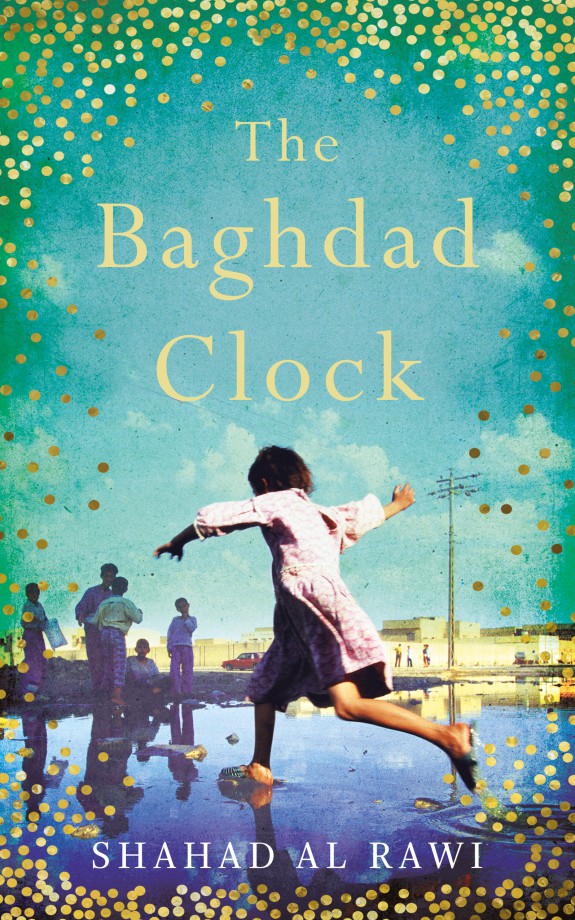
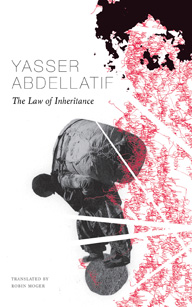

The Baghdad Clock by Shahad Al Rawi, translated by Luke Leafgren (Oneworld Publications, May 2018)
The Law of Inheritance by Yasser Abdellatif, translated by Robin Moger (Seagull Books, August 2018)
Death is Hard Work by Khaled Khalifa, translated by Leri Price (Faber & Faber, March 2019)
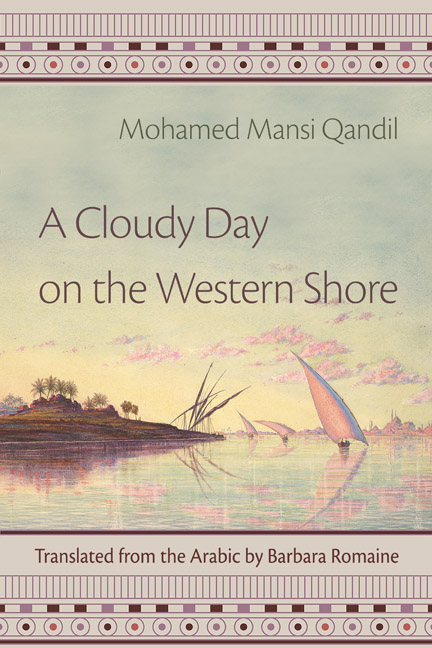
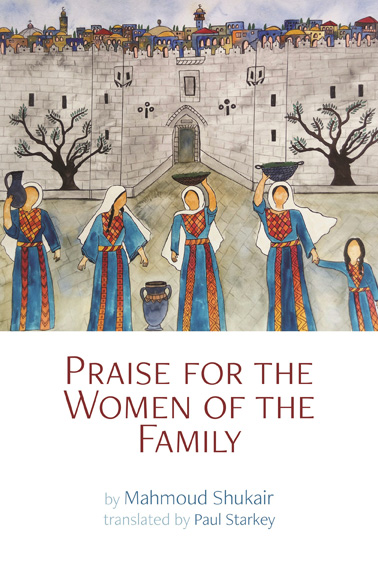
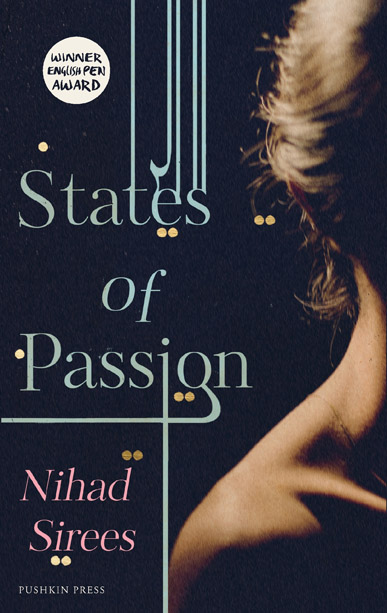
A Cloudy Day on the Western Shore by Mohamed Mansi Qandil, translated by Barbara Romaine (Syracuse University Press, October 2018)
Praise for the Women of the Family by Mahmoud Shukair, translated by Paul Starkey (Interlink Books, March 2019)
States of Passion by Nihad Sirees, translated by Max Weiss (Pushkin Press, September 2018)
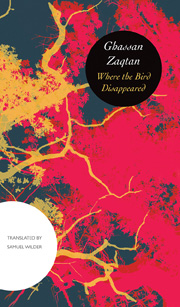
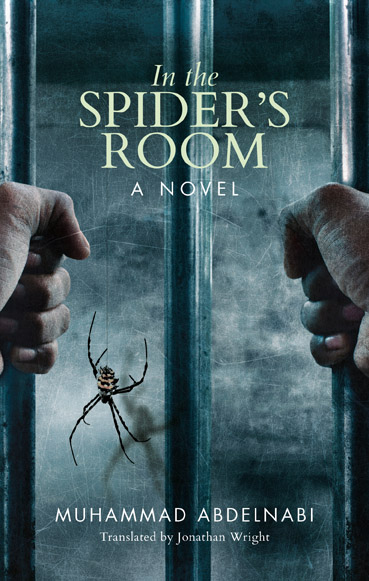

Where the Bird Disappeared by Ghassan Zaqtan, translated by Samuel Wilder (Seagull Books, July 2018)
In the Spider’s Room by Mohamed Abdel-Nabi, translated by Jonathan Wright (Hoopoe Fiction, September 2018)
Jokes for the Gunmen by Mazen Maarouf, translated by Jonathan Wright (Granta Books, January 2019).

